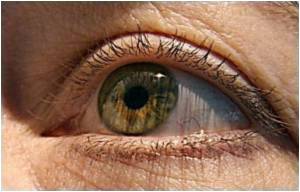Fuchs corneal dystrophy, a genetic disorder that necessitates corneal transplant operations could be caused by a gene identified in a new study.

Fuchs emerges slowly with blurred or cloudy vision, tiny bumps known as guttae (GOO-tay) on the cornea's surface and, in severe stages, painful blisters on the corneal surface.
Having the TCF4 gene variation has a huge impact on the risk of Fuchs disease, said Edwards, a senior research associate in the University of Oregon's Institute of Molecular Biology.
"It vastly exceeds the risk found previously for the complement-factor-H gene in macular degeneration," he said.
"If a person has risk variants involving TCF4, that individual is anywhere from several to a couple of hundred times more likely to have Fuchs disease."
While the TCF4 gene has been identified, exactly what occurs to cause a defect is not understood. The researchers found evidence that at least one transcription protein, E2-2, needs more scrutiny.
Advertisement
The study involved the genotyping of 280 Fuchs patients recruited in clinical settings in Minnesota and Michigan. These patients had at least Stage 1 signs of Fuchs or had received corneal replacements as a result of the disease. Their genomes were compared with 410 control patients.
Advertisement
The discovery has been published in the New England Journal of Medicine.
Source-ANI














